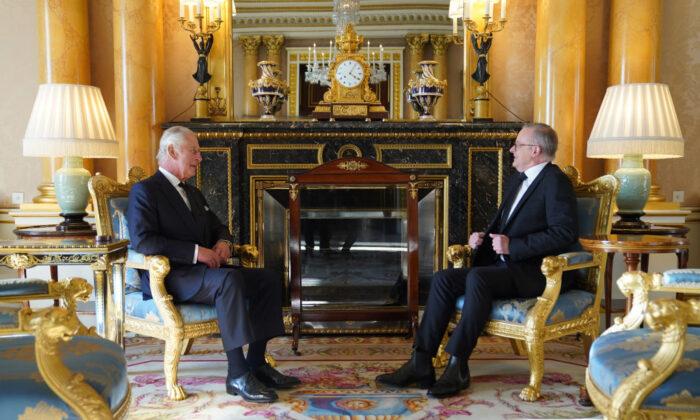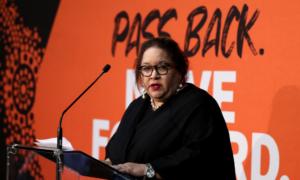In the wake of a loss in The Voice referendum—in which the Albanese government supported a “yes” vote—Labor’s appetite for another constitutional referendum has evaporated.
Matt Thistlethwaite, assistant minister for the republic, has admitted that a republic referendum was “not a priority” and that Labor, if re-elected, was unlikely to hold a national plebiscite.
That is despite telling ABC News breakfast program on Monday that, “The current method of selecting our head of state is undemocratic [and] doesn’t represent modern Australian values.”
However, Mr. Thistlethwaite would not be drawn on a timeframe for seeing whether his views were shared by the majority of Australians, saying, “At the moment, our priority is cost-of-living relief for Australians.”

Cost of Living Predominates
Previously, Labor had said it aimed to hold a vote in its second term if re-elected early next year, but the defeat of The Voice coincided with a sharp decline in support for the government.Behind the scenes, political advisors have been warning the prime minister against promoting another referendum over fears that he would be seen as more focused on constitutional reforms than on the impact of the high cost of living—something the opposition would undoubtedly use to its advantage during the election.
When YouGov surveyed the country in September 2023, views were split, with 32 percent of people wanting the country to become a republic as soon as possible and 35 percent favouring a constitutional monarchy for the long term. A further 12 percent were in favour of a republic, but only after the king had died.
That poll also found that most people were indifferent toward the monarchy, with 38 percent believing it had no real impact, while 34 felt it was a positive and 21 percent felt it was negative.
King Charles III is set to visit Australia later this year for the first time as head of state. The last visit by a reigning monarch was the late Queen Elizabeth II in 2011.
The Mechanism for Change
The Constitution requires that a majority of people in a majority of states vote “yes” for Australia to become a republic.The last referendum vote on the issue was in 1999. It proposed a president appointed by a two-thirds majority of Parliament. About 11.6 million people voted, a voter turnout of 95.1 percent.
The idea was heavily defeated, with 60.66 percent opposed to replacing Queen Elizabeth II as head of state.
Liberal prime minister at the time, John Howard, was amongst those strongly opposed, while future Liberal Prime Minister Malcolm Turnbull headed the “Yes” campaign.
Meanwhile, most people believe Australia will change—51 percent think the country won’t be a constitutional monarchy in 100 years, compared to only 19 percent who think it will, according to the YouGov survey.






